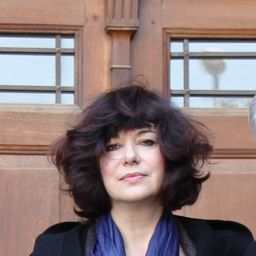
Caecilia Pieri holds is Associate Researcher at the French Institute of the Near-East (IFPO), Beirut, where she was formerly Head of the Urban Observatory (2011-2015). She works on a comparative approach to the field of modern urban history and urban anthropology in Mediterranean and Middle Eastern areas. She received her PhD at the Ecole des Hautes Etudes en Sciences Sociales, Paris, on the subject of the modernization of Baghdad, where she has been conducting fieldwork since 2003. She is particularly concerned with cities in conflict, and the use of heritage as a social marker and tool for politics, and is the leading coordinator of a new research program within Ifpo/AUF ( 2015-2017) about "Heritage at war in the Mediterranean region", with partnerships in Lebanon, Algeria, Egypt, Turkey, Bosnia and Italy. Member of ICOMOS- International and of DOCOMOMO-Lebanon, s he is also an expert within the UNESCO (World Heritage) steering committee for the safeguard of modern heritage in the Arab World. Among her publications as an author or scientific editor: Baghdad Arts Deco, 1920-1950 (American University of Cairo Press, 2011), The Le Corbusier Gymnasium in Baghdad (co-authored with Mina Marefat and Gilles Ragot), and the recent book based on her PhD: Bagdad. La construction d’une capitale moderne, 1914-1960 ( november 2015, Presses de l’Ifpo).
Sessions in which Dr Caecilia Pieri participates
Monday 6 June, 2016
Time Zone: (GMT-05:00) Eastern Time (US & Canada)
9:00
9:00 -
12:30 |
3 hours 30 minutes
Dans le cadre d’une réflexion pluridisciplinaire croisant anthropologie, archéologie, architecture, géographie, histoire, politologie, cette séance propose des lectures empiriques du patrimoine matériel et immatériel en situation conflictuelle. Le patrimoine sera interrogé en tant que construction sociale à valeur symbolique, catalyseur d’appropriation et/ou de fabrications identitaires et objet de discours mémoriels. Dans des contextes politiques autoritaires, et où la contestat...